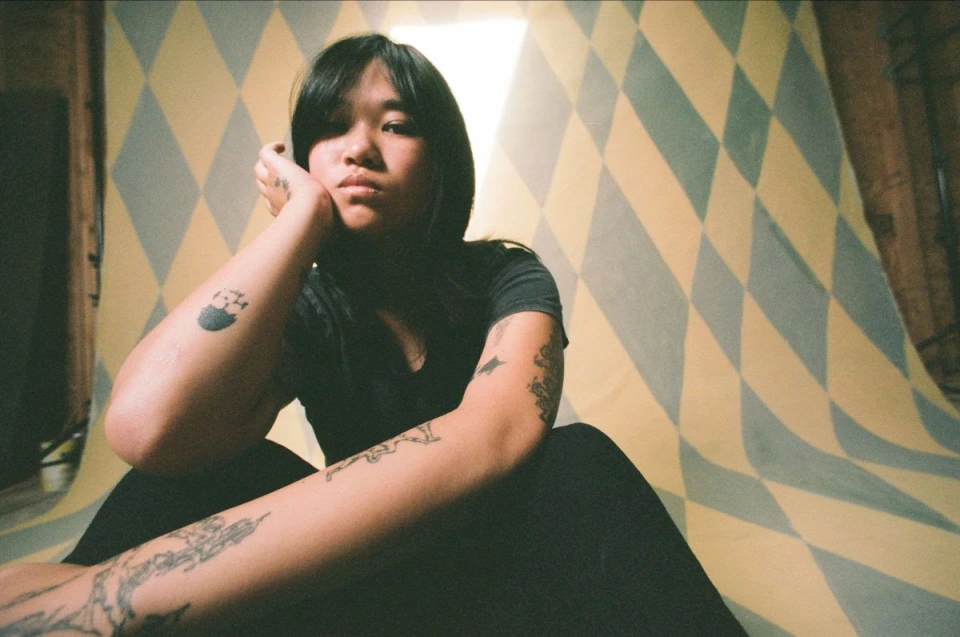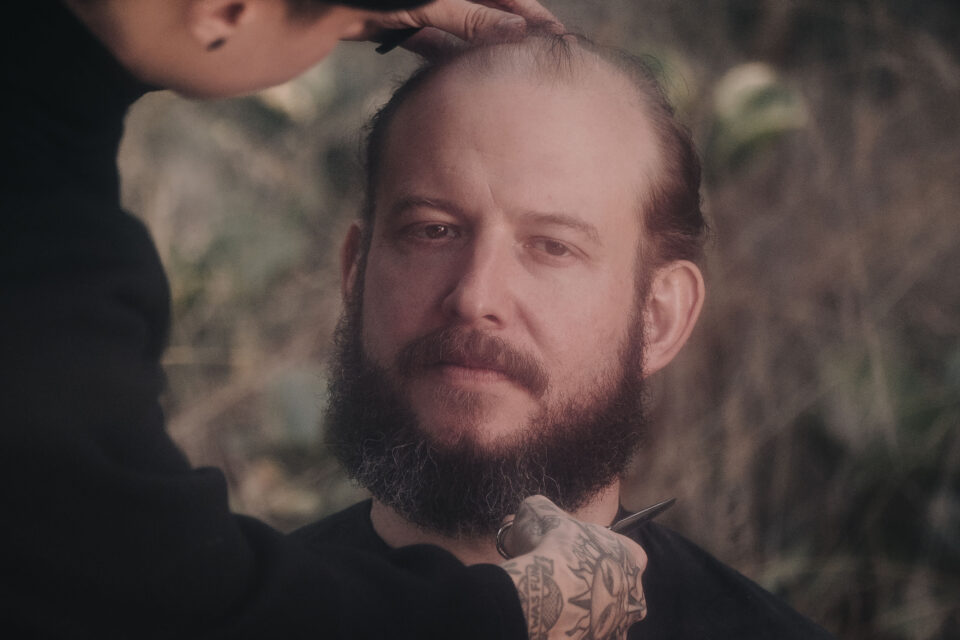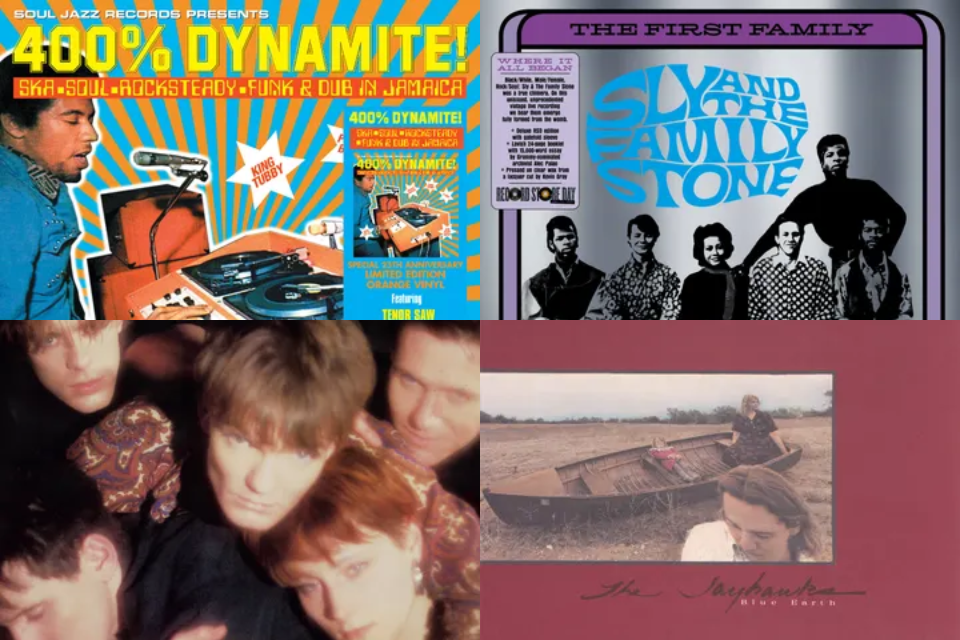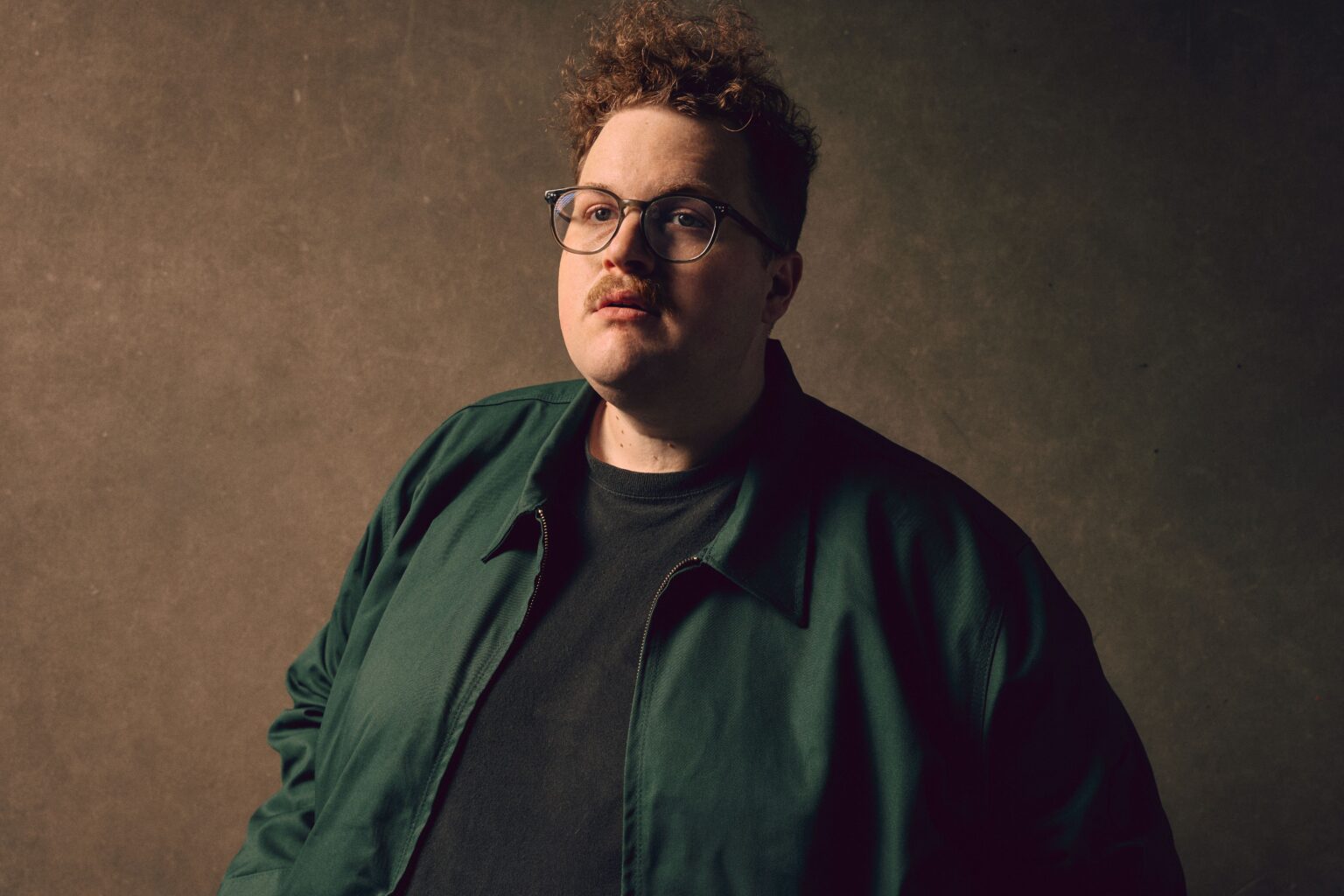Hana Vu’s debut full-length Public Storage released in 2021 was an early WNXP favorite and critically acclaimed elsewhere, too. On Romanticism, her follow-up LP out now, the Los Angeles artist deepens her relationship with “grief, shame and joy” — what she calls the three pillars of life.
The track list, arranged in basically the chronological order in which she wrote the songs, is emotionally raw but with a tasty alt-pop coating. Grunge-inspired guitars and Hana’s strong vocals level up Romanticism from standard singer-songwriter fare. I got to dig in with the artist about this record, her therapeutic journey and shaping up for tour.
Hana Vu is playing in Nashville at the revamped High Watt space now called Row One Stage on July 30.
Being 22 and in your feels
Celia Gregory: Is this romantic, as in nostalgic a lot of the way through? Because I feel like there’s a lot of content here about aging and dreaming of a different place in time. But I also more directly could ask you, since Public Storage, when did you write the bulk of these songs? Where were you in your life that they came out this way and that you wanted to brand it Romanticism?
Hana Vu: I wrote this album pretty soon after Public Storage came out. So from 2021 to the beginning of 2023, I think I was writing it. I was 22. And it’s a very interesting time to be because I didn’t go to college or any sort of school, I was touring and and writing and existing.
I think there’s a difference between being “a romantic” and romanticism. Romanticism is a lot more sad to me. It has more gravitas than romantic, which I feel like has to do with romance. But it’s so much bigger than that. I feel like it’s influenced by all sorts of grief from life around us and culture and eros.
On the opening and closing tracks
CG: “Look Alive” and “Love” are such great bookends. So it feels like a journey. With “Look Alive,” you’re setting the scene and it does feel…I feel grief. But it’s also so pretty with the strings and the dramatic synths and what-not. You say, “I’m sorry for the way I am.” Why? Why are you sorry? And who are you sorry to?
HV: The world, myself. I think grief and shame and those sorts of things, they embody so much more than what we think when we hear those words. Like it really does encapsulate all of life. If you were to have three pillars of life, it would be, like, grief, shame and joy.
I tried to do the sequencing [of the tracks on the album] as close to the order in which I wrote the songs. So “Look Alive” was definitely the first song that I wrote for this album. It’s very daunting. That’s sort of the impetus for the journey. And “Love” was the last song that I wrote for that album.
Composition
CG: How do you typically compose, Hana? Because I know you worked with Jackson [Phillips, Day Wave] on this, with instrumentation. I imagine you have like a million voice memos of just your voice. And I wonder if instead you could prove me wrong and you sit down and pick out a melody on guitar first? What normally happens first to get the bones of a song?
HV: I like to have like a full song before I work on it, before I put it to production or, you know, make anybody else work on it because I feel like one can have so many ideas. And I wanted to, at least for this work, have a very thought-out idea for each song. And so I wrote all of them. And then I brought them into Jackson. But yeah, sometimes I do just sort of sit to myself and think things and then record it into my phone or write down random stuff into my Notes.
CG: Do you typically write lyrics first and then the melodies sort of come to you and wrap around the lyrics?
HV: No, I know that there are people who do that, which is very admirable. There are some people who are words first and then some people who are melody. I feel like I’m sort of like an in-between, like a confluence of those things. At least for me, the one isn’t over the other. I think they’re equally weighted in my mind when I come to writing.
CG: I’m getting so granular, so forgive me, but I think about the balance too on this record that features, yeah, lots of beats, lots of synths. It can feel dance-y, but then there are some sweeter acoustic guitar moments. Do you remember thinking as specific as, “OK, I composed this on acoustic guitar and I want it to sound that way”? Like with the song “22,” for instance.
HV: I wrote all these songs on acoustic guitar or piano. So sometimes we would be like, “OK, here’s a song.” And then we would produce it out do a full arrangement and it sounds not as good. I watched this interview with St. Vincent, like all the really long time ago — probably like from 2013 or something, she was writing, I don’t know, her self-titled [album] or the one before that — and she was like, “You know, a good song can just be a song. It can just be played on the piano. Or if you just play on the guitar and it’s still a good song.” So that’s sort of what I was thinking about when I was writing this. I’m like, if I could play this song just myself with a guitar, with a piano, or just sing it like and it’s still stands and it’s a good song and it’s worth taking.
“Alone”
CG: On the song “Alone,” our voice is over the guitar doing the same melody, right? Like you’re harmonizing with the guitar. I wondered about that creative choice and how that came to be.
HV: I’m not a super “musical” person. I don’t know theory and I’m not like trained or anything. So hence my gravitation towards, like, alternative rock. But yeah, for “Alone” I jproduced that one mainly by myself. So I’m sort of like, “What should go here?” And then I was like, “Let’s stick with what we got.” I sometimes think that things get too crazy, especially when you’re making music that sounds really loud. So I like not to be melodically distracting.
There’s this Lana [Del Rey] song. I don’t remember what it’s called, but I think it’s on Blue Banisters. [It is. It’s called “My Living Legend.”] She just makes, like, guitar sounds with her mouth. Like with her voice, “Wah wah wah wah wah wah.” And I was like, that’s genius.
Working with producer Jackson Phillips
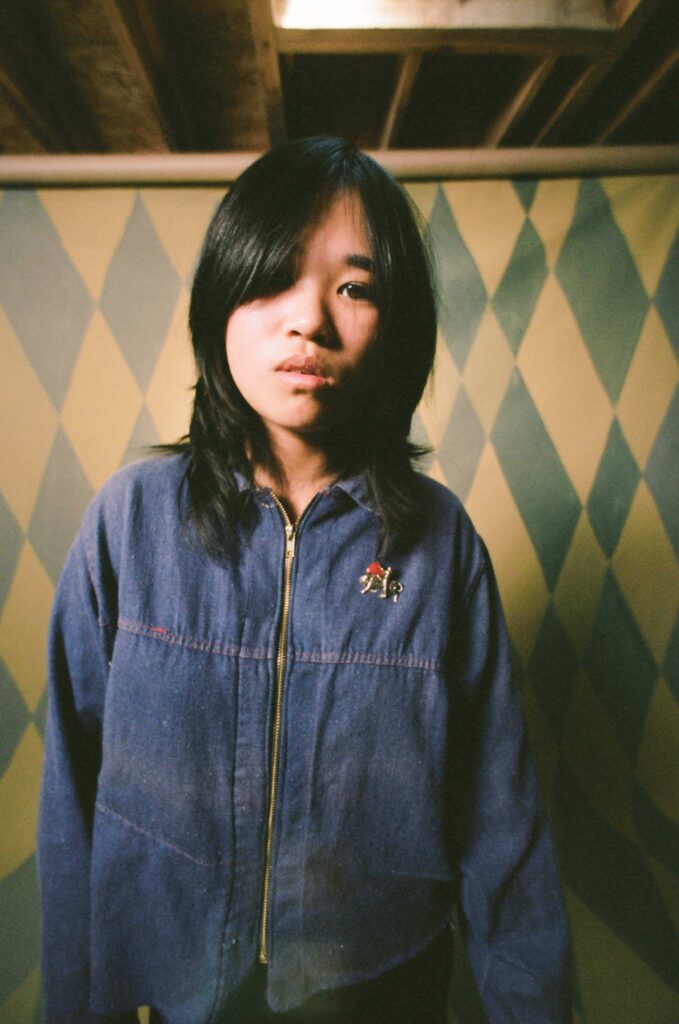
CG: OK, so what about the production techniques? You said you wait until the song is sort of fully formed. It sounds like you really want to have a vision for it before you bring in collaborators. So where did Jackson Phillips push in and become sort of a right hand and make you think about things maybe differently, but not push you away from your vision? Can you think of an example on the record of of his influence as a collaborator?
HV: He’s very musically inclined. He’s a very skilled producer. He has an answer for everything, whereas I sort of, like, work in sort of like vibes and tones and like gestures. I’ll be like, “I want it to feel like you’re on your knees, like screaming at this guy” or something. And he’ll be like, “OK.” He has an answer for sort of every gestural or or vibe thing that I want to do. He’s a very talented player. He just is very solution oriented. Whereas I feel like sometimes working independently, I get stuck…like I have a sort of idea of what I want to do, but I can’t execute it because of some sort of logistical or structural issues. He’s a problem solver, which I appreciate. I think we just work together really well.
CG: Yeah, I like that. You don’t have to be classically trained to make music. Quite the contrary. I love how you mentioned gravitating towards alternative rock and riff rock. I mean, you can express yourself with just power chords if you want, you know. But to have somebody musical on the side that is like, “Have you thought about it this way?” and can paint the picture that you just vocalized what you wanted they’re like, “I’ve got a theory for that,” right? Or like, “I have something technical” that’s a pretty, pretty cool combo. That’s when art meets science in music, you know?
HV: I’ve learned so much from him. I’ll be like, “It sounds so epic here.” And [he says], “It’s because of these chord changes.” It’s all very well thought-out.
“Dreams”
CG: When I think about the song “Dreams,” it feels so applicable to any age and life station, no matter what’s going on. And the beats match with it perfectly to me, because it’s this escapist fantasy of, like, “What if everything was just right?” Do you remember how that one came together? It feels like a breath of fresh air amid some of the grief on the record.
HV: I was in therapy the entire time I was writing this record, and so I feel like it sort of sounds like that. [Laughs.] I remember I hit a point in my therapy, which is when I wrote “Dreams,” which is the secret of therapy, I feel. You know, life is just your perspective and it’s all controllable and it’s all malleable, and it’s just kind of about how you think about it. So I was like, “Life is amazing.” It’s just about if you feel that way or not. I felt at the time that was the secret of my therapy and my emotional world, which is if I just think that everything’s awesome or think that these things are true, like, “Love doesn’t fade away.” It’s true and it’s not true. This is sort of about how you think about it.
So for that song, I tried to write all these statements that felt true and also untrue depending on what I wanted to believe or what one wants to believe. Like, it could sound ridiculous or absurd, or it can sound very true and real, you know, just depending on your own perspective, like the listener’s own perspective, which is what I love.
CG: So what about you as a listener now? I mean, I imagine that song was a year and a half or two years old now, so you remember exactly the point you were in your therapy when you wrote it. But do you hear it now and you’re, like, “Yeah, that’s still squares with me”?
HV: For sure, I think it’s cool. My stepmom’s mom — so like my step-grandma — one time she was like, “Do you ever want to write a happy song?” And I was like, “Maybe?” And so that’s sort of my take on a happy song, more of like the cerebral conceptual idea of happiness versus perfective type of song.
CG: That one’s for you, step-grandma. You get one.
Preparing for tour
HV: I’m in mental and physical training.
CG: What does that entail for you? I mean, obviously, your voice is this really strong instrument in addition to playing with a band.
HV: Yeah, I’m taking up swimming. I try not to eat bread because I’m gonna sit in a van for a month and eat garbage. So I’m just trying to get in shape and get get it together.
CG: Has touring historically been a joyful experience for you? Even if some of these songs are channeling sad emotions, do you have fun on tour?
HV: Yeah, I do. I do ultimately write songs from a place of catharsis — writing is cathartic and I had that in mind when writing these songs. So with playing them, I had a vision. I was talking to my friend Margaret, I sent her the record before it came out, and she was like, “It’s like you’re like on your knees screaming at God with tears in your face, but you’re screaming. And I was like, “That’s kind of like how I feels.” It feels so cathartic to to scream songs.
“I feel like as I get older, life happens a lot slower”
CG: Now that this baby’s out in the world and you’re touring these songs, are you able to simultaneously write, like do you have stuff just pour out of you, or do you just keep, like, set notes on your phone? Is it an ever quest for you as a writer, or do you wait till an album cycle’s sort of closed off after tour, and then you get back to writing like you said you did for this sophomore LP?
HV: I’m definitely not writing all the time. I don’t write songs for like a year. I sometimes think I have to have life happen and experience things, because otherwise I’m stuck in this sort of narrative loop. I was writing songs, a little, just a couple months ago as Romanticism was coming out. I told myself “I have to really break out of this sort of narrative for now and then revisit it when I’m maybe a little bit different or something.” Because I still very much feel like this record is who I am, still, pertaining to a specific time in my life… I feel like as I get older, life happens a lot slower. When I was a teenager, it was completely different. It’s moving so fast and everything is different all the time. I have to take it all in and spew it all out. But lately I’ve been feeling like things move a lot slower, like moves a lot slower. Time feels a bit different, and profundity is slower to my mind.
CG: Is that of comfort to you the slower pace and the not like such herky-jerky, rapid change that you feel like you have to respond to. Is it kind of nice to ease in?
HV: It’s kind of both. There’s an OK Kaya song called “Baby Little Tween” — it’s like this weird little song, but she basically is saying, you know, “When I was younger, everything was crazy. And as I get old, nothing feels like anything anymore.”
So as I get older, is everything just not going to feel like anything anymore? Because when you’re 16, you have a crush, it’s like you want to die and you can’t even live. And then you get older, you’re like, whatever. Everything’s whatever.
CG: Uhhh, I beg to differ. A crush at 39 is just as, like, gut-wrenching. Sorry, sorry to say that doesn’t change that much. But, you know, view from the other side, other things do. Things feel a little shruggy. Like I can’t be devastated by everything, I can’t be obsessed with everything.
HV: Yeah, I don’t have the emotional capacity anymore because you gotta, you know, pay rent and you got to live. You don’t have all the time and capacity to be like, “Oh my God, I can’t believe I have to go to school!!”
CG: That’s true. You can’t put all your emotional eggs in the “I have a crush” basket. Because the other things gotta get done.
HV: Yeah, you can’t put it all in the “I’m so sad” basket. You gotta go run errands and you gotta go on tour.

